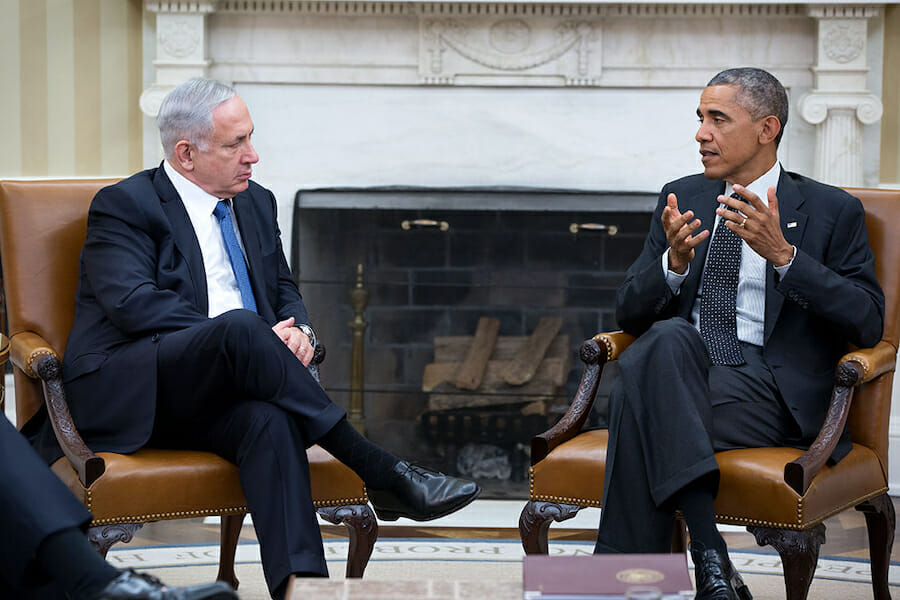
The Upcoming Palestinian Vote
It appears that Tuesday September 20, 2011 will not just be the annual opening of the UN General Assembly. It will be the day that Palestine will officially ask the international community to recognize it as a sovereign state. “Abbas will personally present the request to UN Secretary General Ban Ki-moon…at the opening of the sixty-sixth session,” according to Palestinian Foreign Minister Riyad al-Malki. “[Abbas] will insist on this historic initiative and Ban Ki-moon will present the request to the Security Council.”
If the vote goes ahead and Palestine succeeds, it will become UN’s 194th member state. Irrespective of the larger issues of the conflict, the Palestinian UN vote has led to diplomacy on a monumental scale. This has caused problems for a number of countries, but none more so than the United States.
In mid August a delegation of Arab foreign ministers were urging permanent members of the Security Council to vote for Palestinian UN membership. The delegation was headed by Qatar, who interesting enough is both rich in oil and hosts the largest US military base in the region rent-free, which is the location for Centcom, the US military command center for the Middle East and Central Asia. America’s relations with Qatar are one of only a multitude of problems for the US if it decides to veto Palestine’s bid and smash the hopes and dreams of Palestinians.
The Arab League, which consists of old American allies Saudi Arabia and Egypt, pledged in July to “take all necessary measures and to rally needed support of all world countries, starting with members of the security council, to recognise the state of Palestine…and to win full membership of the United Nations.”
In addition, the Former Saudi Arabian Ambassador to the US recently revealed that “There will be disastrous consequences for U.S.-Saudi relations if the United States vetoes UN recognition of a Palestinian state,” said Prince Turki who is believed to reflect the thinking in Riyadh. Regardless of Palestine’s Arab support, America has pronounced that they will cut all aid to the Palestinian territories even if they just table the vote at the UN.
This is not a weak diplomatic maneuver by any stretch of the imagination, which I discovered during a recent eight-day research visit to Israel and the Palestinian territories. It was my third visit to the Middle Eastern region in recent months, which took me to the United Arab Emirates, Qatar, Oman, Turkey, and Jordan.
My visit to the West Bank gave me a much better perception of the peace operations currently taking place and exactly how reliant the Palestinians are on humanitarian aid. In the Middle East, aid expenditure is dominated by Palestine, the world’s second largest recipient of humanitarian aid over the last ten years falling behind only Sudan. According to the 2011 Global Humanitarian Assistance Report by Development Initiatives released in July of this year, Palestine received $1.3 billion dollars in international humanitarian aid and Sudan, $1.4 billion. I was personally shocked when almost every other car driving on the roads was part of the UN mission.
The UN Relief for Palestine Refugees, or UNRWA, was set up in November 1948 as a temporary organization to extend aid and relief to Palestine refugees. Since then, the General Assembly has repeatedly renewed UNRWA’s mandate. America was UNRWA’s largest donor in 2009 ($268 million), followed by the European Commission ($232.7 million). These contributions made up 53 percent of UNRWA’s total income. Moreover, according to a May 31, 2011 Congressional Research Service report, from 2008 to the present, annual American bilateral assistance to the Gaza Strip and the West Bank has averaged over $600 million.
This includes annual averages of over $200 million in direct budgetary assistance and over $100 million in non-lethal security assistance in the West Bank. The remaining $300 million, which comes from U.S. government grants goes to NGOs for project assistance. The UN vote could bring all of this much-needed aid to a halt. The US Senate recently passed a resolution threatening to suspend financial assistance if Palestine’s leaders “persist in efforts to circumvent direct negotiations by turning to the United Nations or other international bodies.” The resolution also called on President Obama’s veto and for him to “lead a diplomatic effort to oppose a unilateral declaration of a Palestinian state and to oppose recognition of a Palestinian state by other nations.”
To veto or not to veto, that is the question. If Obama’s speech to the American Israel Public Affairs Committee in May is anything to go by, it will be a veto. “Even while we may at times disagree, as friends sometimes will, the bonds between the United States and Israel are unbreakable, and the commitment of the United States to the security of Israel is ironclad,” stated Obama. American allies, France and the UK suggested a similar stance to the US; Palestinians should return to bilateral peace talks and not pursue UN membership.
What Happens After the Vote?
It is hard to say what will happen after the vote, regardless if the US vetoes or not. Even while I am writing this article, rockets are being launched from Gaza into Israel and Israeli air strikes against the Palestinians are taking place.
Marwan Barghouti, a leading member of the Fatah party who organized attacks against Israel said from an Israeli prison: “Voting against the Palestinian state would be a historic, deadly mistake in the record of US President Barack Obama, in whom there was hope for change…Such a veto will be confronted by millions-strong protests throughout the Arab and Muslim world, indeed throughout the whole world.”
A view from some of the members of the Israeli government is not much different than Barghouti’s. Israeli Foreign Minister Avigdor Lieberman warned the Palestinians were planning “bloodshed and violence the like of which we have never seen.” This is a lie, according to the Palestinian authorities. “We believe 100% that any kind of violence will reflect negatively against our demands,” according to Palestinian foreign minister Riyad al-Malki. It is highly likely that protests will occur no matter what the outcome of the vote is.
The US is stuck in a lose-lose situation. Do you once again significantly damage alliances with Arab states, or do you go against one of your greatest allies and their seeming all-powerful lobby? Your choice President Obama. If Obama picks the latter, an ‘official’ Palestinian state could bring Israel to the International Court of Justice and push for an international boycott of the Jewish state. If Obama picks the former, America’s role as mediator could be all but over.
A valid question is why would America veto if they support a two state solution? Does it not make sense for Palestine to have the recognition they seek and then continue with the bilateral negotiations, which is probably the only real way to achieve real peace? Regardless of what happens at the vote, “peace” between Israelis and Palestinians will not immediately be achieved.
One particular incident I found extremely upsetting while in Israel took place in Nazareth where those of the Christian faith believe an angel Gabriel told the virgin, Mary that she would soon give birth to a son Jesus. Outside of the Church of Annunciation is a sign that reads: “whoever seeks a religion other than Islam, it will never be accepted of him, and in the Hereafter he will be one of the losers” (Koran 3:85).
Today Nazareth is an Israeli city of mostly Muslim inhabitants. Conflict originally broke out in the area in 1997 when Muslims set up a prayer tent near the church and tried to build a mosque next to it. Israel terminated the mosque project in 2003. A number of similar events occurred during my short stay in the area, especially in Jerusalem. You almost get this same sense of tension that I felt in Nazareth when you are in the city. Hamas is quite openly anti-Christian and the leaders of Palestine have said that “no Jew” will ever be allowed to live in a Palestinian state.
It soon becomes obvious why the Israeli-Palestinian conflict has not been solved after all these years. A lot of it is pure emotion. And one of the bigger issues, religion, is an emotional topic, if not the most emotional aspect of one’s life. The Palestinian vote is an act of desperation. Palestinians have tried negotiating for years and they have failed to either to create an independent Palestine or to even stop Israel’s settlement construction in the West Bank. I guess the old saying rings true; desperate times do call for desperate measures.

